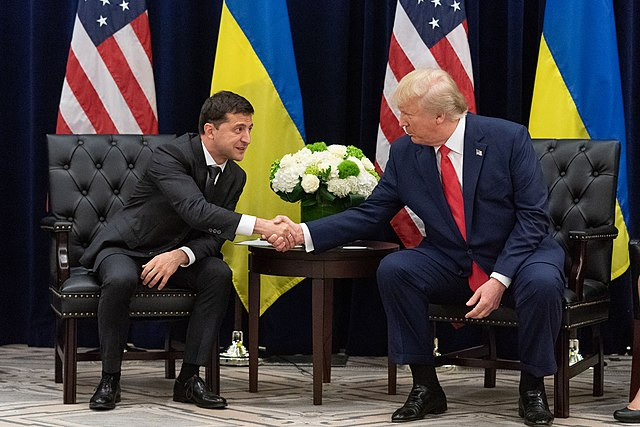The United States is stepping back from its role in mediating peace talks between Russia and Ukraine, a State Department official said Thursday, marking a shift in the Trump administration's approach to ending the war. The move comes amid rising frustration in Washington over stalled negotiations and continued battlefield violence.
"We are not going to fly around the world at the drop of a hat to mediate meetings," State Department spokesperson Tammy Bruce told reporters. "It is now between the two parties, and now - now is the time that they need to present and develop concrete ideas about how this conflict is going to end. It's going to be up to them."
The announcement signals a reversal of the U.S.'s diplomatic posture and follows weeks of intensifying skepticism from the White House over Russia's commitment to talks. "We are watching Putin's actions, right, not his words," Bruce said. "This would be a pivotal week."
The pullback also comes on the heels of a new bilateral minerals agreement between Washington and Kyiv, finalized Wednesday after two months of negotiations. The deal, which includes a joint investment fund and allows Washington to earn credit for contributions in military technology or training, has drawn scrutiny from Moscow and may further complicate any return to negotiations.
Despite the end of formal mediation efforts, the U.S. has continued to support Ukraine militarily. The State Department this week approved a license to export at least $50 million in defense articles and services to Kyiv, separate from Congressional military aid that is expected to run out next month.
U.S. Vice President JD Vance emphasized that the conflict had reached a stalemate and that it was no longer the responsibility of Washington to arbitrate a resolution. "It's not going anywhere," Vance said during an appearance on Fox News. "It's going to be up to them to come to an agreement and stop this brutal, brutal conflict."
Secretary of State Marco Rubio echoed those remarks, telling Fox's "Hannity" program that unless there is a "real breakthrough," President Trump "is going to have to make a decision about how much more time we're going to dedicate to this."
The Kremlin has reportedly rejected the latest U.S.-backed peace proposal, citing the plan's failure to acknowledge Russian control of annexed Ukrainian territories. Kyiv, in turn, has refused to concede any territory, maintaining that Russia must not be rewarded for its 2022 invasion.
The diplomatic shift follows one of the deadliest attacks on Kyiv in recent months. Russian missiles struck four residential districts early last Thursday, killing at least 12 civilians and injuring 90, according to Ukrainian officials.
Adding further uncertainty, Ukraine President Volodymyr Zelensky recently confirmed that Trump turned down a $15 billion request for 10 U.S.-made Patriot missile systems. Though the U.S. continues to allow private arms sales, Zelensky's push for large-scale direct procurement from Washington has so far been unsuccessful.
Moscow, meanwhile, has announced a temporary 72-hour ceasefire beginning May 8 to coincide with its annual Victory Day holiday. Western officials have dismissed the pause as a symbolic gesture rather than a serious diplomatic overture.





